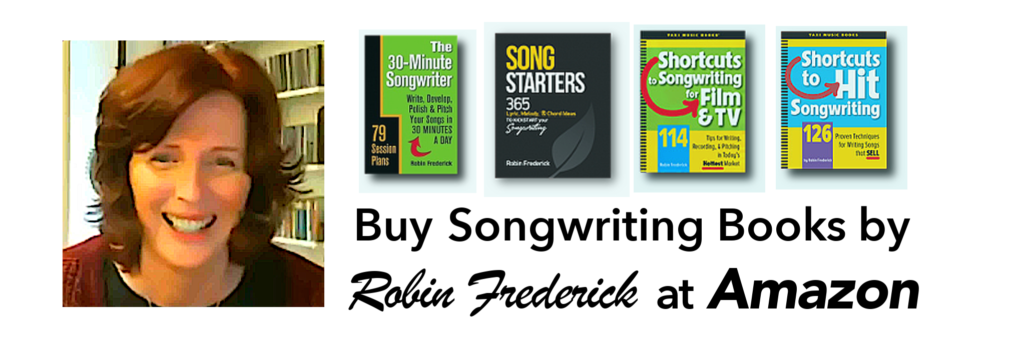Most of the time when you start writing a song, you’re thinking about what you’re feeling and what you want to say. Good! That’s the best way to approach your songwriting. But it’s also a good idea to keep a little corner of your brain focused on the song genre you want to aim for. Knowing your song’s genre right from the start, will make it much easier to find an audience for it down the road, and possibly a music publisher or record label.
Like ice cream, songs come in different flavors: strawberry, chocolate, peach, and rocky road. And, like ice cream flavors, there are very real differences between the four mainstream music genres—Country, Pop, Rock, and R&B. Each one appeals to a different audience.
When listeners tune into a radio station that plays Country music, they expect to hear a range of songs that share the kinds of chords, melodies, and lyrics that are characteristic of today’s Country genre. They don’t expect to hear Jazz, Rock, or Pop/Dance. If they get a Hard Rock song instead of a Country song, they probably won’t be happy. Radio stations need to keep listeners satisfied if they want them to stick around. So they have to give them what they came for.
Stay in your lane
At first, try sticking close to a genre. If you write a song that straddles genres—let’s say you throw a few cool jazz chords into your Country song —you may have trouble finding a publisher for it or an artist who will record it. Why? Because publishers, record labels and artists all know that reaching an audience that likes a certain kind of music is essential if they want to sell records.
If you’re an independent artist, recording your own songs, you can take plenty of chances with your album cuts but, if you want to reach a wider audience, you’ll still need a couple of songs that can get radio and Internet airplay. If you want to get onto a list of “fans also like” to reach the fans of a more famous artist, you’ll need to make sure you’re at least in the same song genre.
Consider aiming at least two of your songs toward the general sound that is characteristic of a genre. Once you have a big fan base, you can push the boundaries more.
Choose a genre
Spend some time listening to current hits in the genre you want to write in. If you like Country music, listen to the top 20 current Country hits and study the chords, melodies, and lyrics to see what they have in common. What is it that Country audiences are excited about right now? Whether you want to write Rock, Pop, Country, R&B or Hip-Hop, find out which songs are getting the most play. These are the ones that listeners want more of.
“But,” I hear you say, “these songs being pushed hard by mega-record labels. That’s the only reason they’re hits!” Of course there’s plenty of money behind all of these songs—the big record labels can afford to buy plenty of ads and lots of promotion—but ultimately money can’t push a song to the top of the charts, only listeners can do that. There isn’t enough money in the world to force listeners to like something.
Where to find songs in a genre
The quickest way to find recent hit songs sorted by genre is on the stream-on-demand sites like Spotify, Apple Music, and Amazon Prime Music. On Spotify and Amazon Prime Music click in the SEARCH box for a list of genres. On Apple Music click on GENRES.
Select a genre you’re interested in and look for current hits. Listen to the songs. Write down the titles of a few songs you like. Don’t pick the duds you don’t like! Choose songs you wish you’d written.
Once you’ve found a genre you like and a couple of songs, listen to them carefully and study your genre. Look for the general, broad characteristics of your genre by asking the following questions as you listen.
Lyrics in a genre
- What themes are featured?
- What kind of language is used: direct, slangy, poetic?
- What sorts of characters turn up in these songs, including the singer?
- How does the lyric tell the listener what’s happening?
Melody in a genre
Chords in a genre
- Do you hear basic three-note chords primarily?
- What other kinds of chords are being used?
- Where does the chord progression repeat and where does it change?
These are just a few of the questions that will help you study your song genre. No one wants to sound exactly like everyone else but you DO want your song to incorporate enough of a genre’s characteristic sound so that it will fit into a radio format. Blend it with your own style to make sure YOU still sound like YOU but give it an extra push toward radio.
